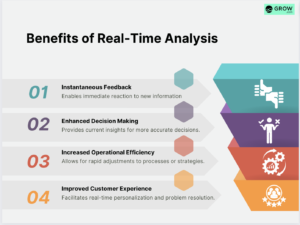
Marketplace businesses have gained significant appeal due to the success of platforms that connect buyers and sellers directly, creating lucrative platforms of trade between people in unique ways. But before investing, one needs to evaluate carefully it’s worth. Simply browsing marketplaces for sale by price or size won’t do; an understanding of why such ventures thrive is vital to making smart choices as an investor.
Financial Performance and Profitability
One of the first considerations when evaluating marketplace businesses is financial health. Even though a marketplace might seem attractive on paper, digging deeper can reveal whether its revenue streams and profit margins will sustain itself for an extended period.
Focus on consistent revenue generation for your platform. Are transaction fees, subscription fees, or any other methods providing income? Furthermore, evaluate both gross and net profit margins; high revenues don’t translate to success if operating costs outstrip revenue generation – expenses like marketing expenses, platform maintenance expenses, and customer support all play into its viability.
User Base and Engagement
Before creating any marketplace, you must assess its user base and engagement levels. While having many registered users may seem positive, the true value lies within its active users – those regularly engaging with it through transactions or returning frequently.
Keep a keen eye on metrics related to user retention and growth rates. A higher retention rate indicates that the marketplace provides long-term value to its users, which bodes well for future business prospects. Conversely, platforms with a low retention rate or declining user activity might indicate issues that threaten profitability.
Market Positioning and Competitive Landscape
It is crucial that we first assess where a marketplace stands within its wider market. You need to identify whether it operates within a specialized niche or more general space – niche marketplaces tend to provide stability by catering directly to a select audience with specific needs; larger marketplaces often face stiff competition from more established players that could threaten its stability over time.
As important is understanding the competitive environment. Who are your primary competitors, and what sets this business apart from those operating within its niche? A compelling unique value proposition-such as offering specialty features or cultivating loyal customer bases-can serve as a strong selling point; conversely, struggling to stand out in a saturated marketplace should raise a red flag.
Technology and Platform Infrastructure
Every successful marketplace depends on a solid technological infrastructure. When considering purchasing one, make sure to investigate its platform’s scalability, usability, and security features as these may hinder its development or even hamper potential customer/seller interaction and growth. A difficult or unusable platform may turn away customers or sellers altogether and ultimately impact its growth negatively.
Scalability is of utmost importance if you plan to expand after purchasing an existing business. Make sure the current infrastructure can handle an increase in traffic and transactions without major updates needed, and invest in strong security measures for any platform offering digital services so users feel safe storing their financial information or personal data online. Any failings here could severely tarnish its reputation among users.
Legal and Regulatory Considerations
Acquiring a marketplace requires legal considerations as much as financial or technical ones. When purchasing, make sure all intellectual property rights for any software running your platform have been obtained properly to avoid future complications in terms of legality. Any gaps could potentially create issues in terms of liability issues down the road.
Data protection laws such as Europe’s GDPR have become more stringent over time. To avoid incurring costly fines and penalties for noncompliance with all regulations about your marketplace platform, ensure it adheres to each regulation as set out above and consider any local or tax implications should your marketplace operate across multiple regions or countries.
Customer Feedback and Marketplace Reputation
A marketplace’s reputation can make or break its success. Customer feedback in the form of online reviews, testimonials, or ratings gives an accurate snapshot of user satisfaction on any platform; an organization with consistently positive ratings likely enjoys strong customer retention that ensures continued long-term growth.
Conclusion
Assessing marketplace businesses before purchase requires taking an in-depth and holistic approach. From financial performance evaluation and user engagement metrics to market positioning analysis and technology assessment – every factor plays a vital role in assessing its true worth and value. Whether searching marketplaces for sale or conducting due diligence on specific platforms – taking time and attention to review all of these aspects will enable you to make smart and informed decisions when considering buying any marketplace business.






